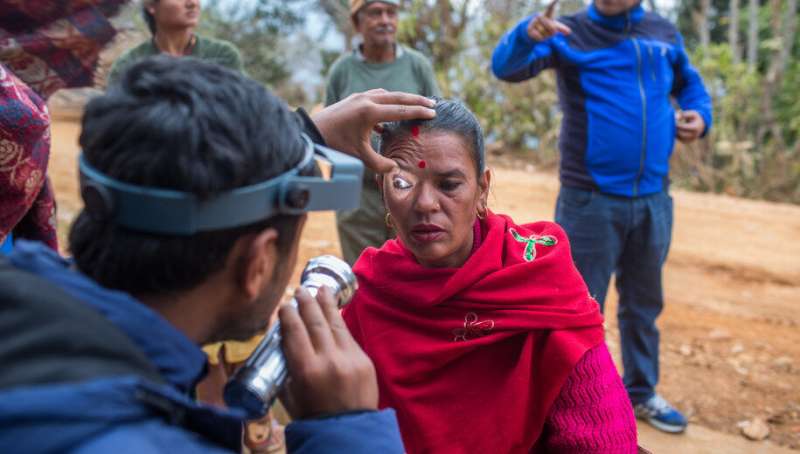WHO to tackle 20 neglected tropical diseases

Delegates attending the virtual session of the 73rd World Health Assembly (12 November) have endorsed a new road map that sets specific targets to tackle 20 neglected tropical diseases [NTDs] by 2030 through focused interventions.
NTDs, the road map said, "are a diverse set of 20 diseases and disease groups [e.g. lymphatic filariasis, trachoma, human African trypanosomiasis, leprosy, and so on] with a singular commonality: their impact on impoverished communities. Together they affect more than a billion people with devastating health, social and economic consequences".
The targets in the new road map (2021—2030) include: decrease in the number of people needing treatment for NTDs by 90 percent, elimination of at least one NTD in 100 countries, eradication of two NTDs, i.e. dracunculiasis and yaws, and decrease in the NTD-related disability-adjusted life years (DALYs) by 75 percent.
"Countries are both the drivers and the beneficiaries of progress towards the 2030 targets for NTDs. National and local governments must therefore lead work to define agendas and realise their objectives, financed partly or fully through domestic funds," the road map said. "Countries must integrate and prioritise prevention and control of endemic NTDs in national health plans and dedicate a corresponding line item in national health budgets."
Developed through extensive global consultations with experts since 2018, the road map replaces an older one published in 2012. According to WHO, "The new road map will advance the NTD agenda, with opportunities to stimulate efforts through comprehensive approaches that require multisectoral collaboration."
Mwelecele Ntuli Malecela, director, WHO Department of Control of Neglected Tropical Diseases, said in a statement, "The new road map addresses critical gaps across multiple diseases, integrates and mainstreams approaches within national health systems and coordinates action across sectors. It also provides us with opportunities to evaluate, assess and adjust programmatic actions as needed over the next decade."
According to Michael Head, senior research fellow in global health at the University of Southampton, UK, the NTD roadmap has a series of clearly described and ambitious but achievable targets. "It is excellent to see the roadmap formally adopted, and hopefully it will focus minds on making significant progress in reducing the burden of NTDs."
Head tells SciDev.Net that, some NTDs, such as African trypanosomiasis, are closer to elimination than others where there has been little previous focus, such as scabies. "These diseases don't kill many people and often don't get headlines, but they are all seriously unpleasant and pose real threats to health and quality of life," he holds.
Peter Hotez, founding editor-in-chief of PLoS Neglected Tropical Diseases and dean, National School of Tropical Medicine, TX, US, says he is worried that COVID-19 could set back progress, because of an expansion in the number of people who live in extreme poverty. "This means that more people will now be rendered vulnerable to NTDs."
Besides, says Jotez, COVID-19 could interfere with the work of community drug distributors, or repurposing funds intended for NTDs.
"We need to emphasise that the world's most vulnerable people are now growing in numbers due to COVID-19 and therefore, [there is a need] to re-emphasise the importance of continuing and [expanding] control programmes for NTDs," Hotez argues.
"Also, we need to further [stress on] the importance of new biotechnologies for NTDs, including new drugs, diagnostics, vaccines, and vector control technologies," he adds.
















